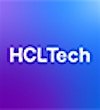As you enter the job market, you’ll want to evaluate opportunities based on several factors, and the two biggies are salary and benefits. Basically, employee benefits refer to the extra, usually non-monetary, perks provided to staff beyond a salary. Salary is typically about 70% of an employee’s compensation, with benefits making up the rest.
Benefits fall into a few general categories — healthcare, education, amenities, financial — and within each of those are many, many more variations. Some companies get quite creative with their perks.
This blog gives an overview of employee benefits, providing a quick introduction for someone new to the workplace or seeking their first role in a tech career.
Why employment benefits matter in your first career job
A survey by the Society for Human Resource Management (SHRM) found that fewer than 10% of human resource professionals believe their employees are "very knowledgeable" about their benefits. Don’t follow that example.
As you plan your first big career move, employee benefits are worthy of investigation. You have many working years of benefits ahead of you, but that’s no reason not to get started on the right foot. Arm yourself with knowledge in advance of interviews. Bring to those conversations a basic understanding of the different types of benefits available. You won’t be alone in paying attention to employment benefits, as 63% of job seekers do, with some even preferring additional benefits over a raise.
Understand why companies offer benefits and learn how to use that to your advantage during negotiations and decision-making. A lower-paying job offer you really like could be balanced out with an excellent benefits portfolio. For many new hires, flexible hours, work-from-home options and unlimited vacation gives one position an advantage over a better salary with fewer attractive benefits.
Benefits packages important for overall job satisfaction
SHRM also found that 92% of employees consider employment benefits important for overall job satisfaction. Many employees cite poor benefits as the main reason for looking for a new job, and good benefits as a primary reason for staying in a current role.
Good benefits can keep an employee, but a lackluster package won’t hold them if a better opportunity comes along. Hiring organizations know that job satisfaction is key to retention and productivity.
Why top tech employers offer good benefit packages
Compensation benefits are among the most basic employee engagement and retention strategies available to employers, and they support talent attraction, too. Employers use benefits packages to influence you to sign with them because perks work.
Benefits also enhance job satisfaction and foster positive work environments. Benefits have become a means to promote employee wellbeing and drive long-term company productivity. “High employee engagement and overall workplace engagement can drive measurable productivity and innovation, leading to broader success for the organization,” says Anoop Tiwari, HCLTech Senior Corporate Vice President.
Examples of benefits often found in compensation packages
As employment benefits evolve, companies strive for a diverse portfolio of perks to attract and retain talent in competitive job markets. Here we explore common compensation examples to ask about, especially with global employers.
Healthcare Benefits
- Comprehensive health plans — Including medical, dental and vision coverage with options for various levels of coverage based on individual and family needs
- Annual health checks — Regular health assessments not only for employees but also for dependents, including extended family members
- On-campus health clinics — Equipped with specialized diagnostics and consulting facilities, promoting preventive care and wellness programs
- Wellness programs — Comprehensive psychological support as part of wellness initiatives to address mental health, nutrition, exercise and overall wellbeing
Education Benefits
- Training and development opportunities — Encouraging continuous learning and skill enhancement for professional growth
- Tuition assistance — Support for education expenses, particularly for advanced degrees or specialized courses, fostering employee development
Amenities
- Flexible work hours — Providing work schedule flexibility for improved work-life balance
- Hybrid workspace — Offering a combination of office and remote work options to adapt to modern working preferences
- Inhouse daycares — Facilitating a family-friendly environment by providing childcare services
- Transportation reimbursement — Some companies reimburse transportation costs or offer pre-tax options for public transport and parking or even provide ridesharing or shuttle services
Financial Benefits
- Bonuses and awards — Recognizing and rewarding individual or company-wide performance through bonuses, commissions and lump-sum gifts
- Insurance plans — Including life and short- and long-term disability insurance for financial security and wellbeing
- Stock option plans — Allowing employees to invest in the company and share in its success
Time-off Benefits
Paid time off (PTO) — Encompassing vacation, personal and sick days, either bundled or separate, with considerations for rollover policies
Extended leave — Offering extended periods for vacation or sick leave to ensure work-life balance and employee wellbeing
Wellness perks — Including onsite wellness initiatives such as flu shots, biometric screenings, gym discounts, health coaching and financial wellness programs
Have the benefits conversation in your tech job interviews
Holistic benefits contribute to a work environment that addresses the physical and financial wellbeing of employees, plus continuous learning and positive work-life balance.
If that’s important to you, make non-monetary compensation part of every interview and hiring conversation. Employers are auditioning for you as much as you are for them, especially if you’re entering a hot field like technology.
Pay attention to benefits as you launch your tech career
As you continue exploring where you’ll launch your tech career, keep HCLTech in mind. Leading industry organizations recognize our benefits and culture, and we think you’ll like what you hear. Find your spark at HCLTech.





